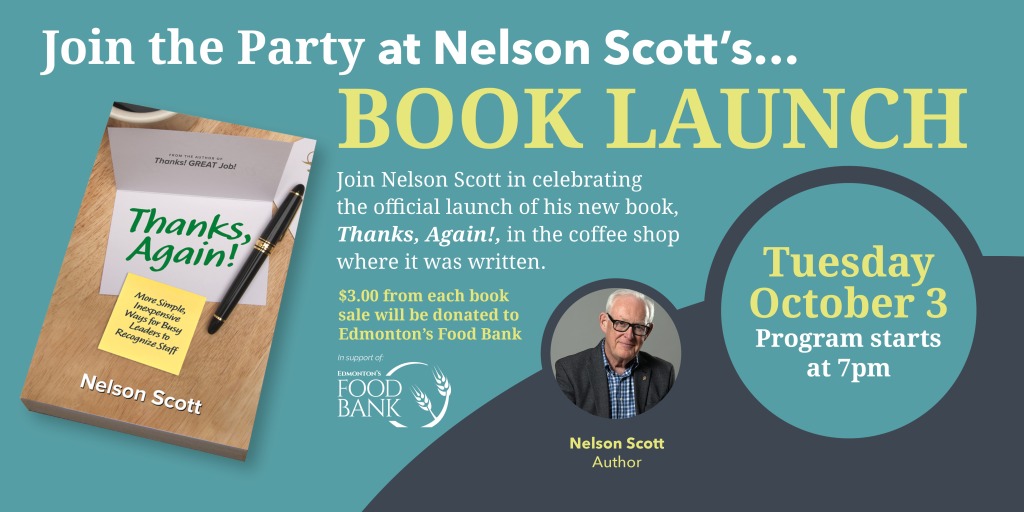In a recent article, I described garage sales as an inexpensive source of fun tokens to help convey your message of appreciation, while keeping in mind that it’s your words that mean the most to recipients.
In addition to being a potential treasure trove of items that could be used to help convey your message, garage sales also offer evidence that others have failed to find Appropriate gifts to celebrate birthdays and anniversaries or to recognize staff.
Whether purchased at a neighbour’s sale or from a retailer, it is vital that symbols of our gratitude used when recognizing staff are selected with the recipient in mind. Appropriate tokens of appreciation should reflect your knowledge of the individual—their interests, hobbies, non-work life, career plan, reading preferences, etc.
Related Article: 7 Questions to Ask to Recognize Staff Appropriately
When I think about garage sales, the image that pops to mind is of a collection of games in a faux leather case embossed with the logo of the organization that likely presented it to an employee as an award after five or 10 years of service. I willingly paid seven dollars for it at a garage sale.
It includes several games I enjoy or should learn—backgammon, chess, cribbage, dominos, checkers and two decks of playing cards that provide an infinite number of games.
The collection was perfect—for me!
But obviously not for the recipient who didn’t even remove the cellophane wrapping before adding the box to the garage sale table.
Plainly, the gift was not selected with the recipient in mind. The employer didn’t know this individual well enough to realize that a games collection would be of no interest.
In my first book, Thanks! GREAT Job!, I recalled a conversation with an acquaintance who unintentionally illustrated what happens when what is meant to convey a message of appreciation is not Appropriate. She showed me a set of glasses etched with her employer’s logo that she—and everyone other employee—had received to mark a milestone in the company’s development.
“I would really like to have more of these,” she told me. “They are really expensive glasses but most people don’t know that. I am sure that I’ll be able to buy more at garage sales next summer.”
It was yet another confirmation of the truth of “Guru of Thanks” Bob Nelson’s estimate that up to 90 per cent of the money being spent on recognition trinkets is wasted. Many of these items are destined for landfills or garage sales.
I can’t escape this article unscathed. Years ago, I was part of a school district’s leadership that decided that everyone—teachers, support staff, custodians—who worked for the school system would appreciate receiving a baseball cap with the district logo.
Well, we were wrong. Some were not thrilled to receive a baseball cap to show they were part of the team.
Within 24 hours, at least one had been donated to a used clothing store and a friend took delight in reporting that a cap had been observed on the head of someone definitely not associated with the school system.
There is a common theme to these stories of recognition gone wrong. They demonstrate one of the 12 staff recognition practices to avoid that I included in my new book Thanks, Again!—believing that “one size fits all”
That’s not true for clothing and it’s not true for staff recognition. No two staff members are alike. Everyone has distinctive characteristics. Recognition that fits one person may not be a good match to a colleague’s recognition preference or reflect what’s important to them. Recognition that is Appropriate is more memorable than when everyone receives the same generic award.
One-size-fits-all recognition doesn’t work.

Thanks, Again! will be available for purchase during its official launch on Tuesday evening, October 3 at 7:00 p.m. in the Second Cup Cafe, 8303 112 Street NW, Edmonton. You can also buy Thanks, Again! at Audreys Books, 10702 Jasper Avenue, Edmonton (and on their website) and online from Amazon, Indigo, and the FriesenPress Bookstore.




